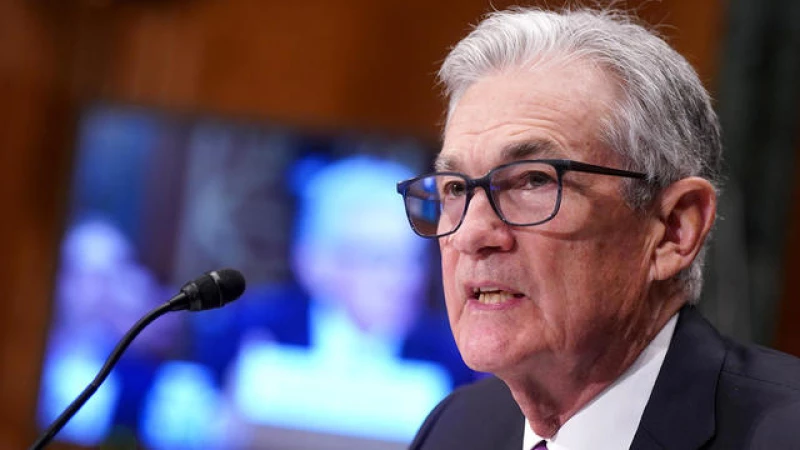Americans are bearing the financial burden of higher costs for every type of loan, from mortgages to credit cards, after two years of interest rate hikes by the Federal Reserve. With the central bank meeting Wednesday, economists and consumers alike have one question on their minds: When will the central bank start cutting rates?
The answer: Almost certainly not this month, and probably not at its next meeting, according to Wall Street forecasters.
Most economists polled by financial data company FactSet think the Fed will keep its benchmark rate steady on Wednesday, as well as at its following meeting on May 1. Consumers holding out for lower borrowing costs may have to wait until the following month for relief, with about half of economists now penciling in the Fed's June 12 meeting for the first cut in four years, FactSet data shows.
The Fed kicked off its flurry of rate hikes in March 2022 as inflation soared during the pandemic, reaching a 40-year high in June of that year. Although inflation has rapidly cooled since then, it remains higher than the Fed would like, which is why economists believe the central bank will keep rates steady this week.
That doesn't mean that the Fed won't say anything noteworthy. Experts said the Fed's latest economic outlook could provide hints about when rate relief might be in the cards.
"The Fed is going to be taking a lot of the oxygen out of the room this week as they conclude their March meeting on Wednesday afternoon," said Sam Millete, director of fixed income at Commonwealth Financial Network, in an email. "We've seen some mixed economic data to start the year. It's going to be interesting to see how the Fed reacts to that, especially in Fed Chair Jerome Powell's post-meeting press conference."
Here's what to know about Wednesday's Fed meeting and what it means for your money.
When is the Fed meeting this week?
The Federal Reserve's Open Market Committee meets on March 19-20. The rate-setting panel will announce its rate decision at 2 p.m. Eastern time on March 20.
Chairman Jerome Powell will hold a press conference at 2:30 p.m. on Wednesday to discuss the FOMC's rate decision and provide information on the central bank's outlook.
When and by how much will the Fed cut interest rates?
The Fed on Wednesday is expected to maintain the federal funds rate in a range of 5.25% to 5.5%.
The central bank is contemplating whether to provide guidance on the timing of the first rate cut since March 2020, when the economy was in turmoil due to the pandemic, leading to a significant reduction in borrowing costs by the Fed to support the economy.
Analysts anticipate that Powell will affirm on Wednesday that the Fed is looking for sustained progress in its fight against inflation before considering rate cuts.
Economists still believe that the Fed may reduce rates multiple times in 2024, although some are now predicting fewer cuts than previously anticipated. For example, Goldman Sachs recently adjusted its forecast from four cuts to three, citing stronger inflation figures than expected.
This adjustment is primarily due to the inflation rate, which stood at 3.2% on an annual basis in February, surpassing the Fed's target of 2% and exceeding January's 3.1% rate.
What is the inflation rate in 2024?
To be sure, inflation has cooled considerably after touching a four-decade peak of 9.1% in June 2022, but it remains higher than its pre-pandemic levels of about 2% and represents one reason why economists believe the Fed will push back rate cuts until at least June.
If inflation is down, why isn't the Fed cutting rates?
Powell has repeatedly noted that cutting rates too soon could spark a resurgence of inflation, causing more financial pain for consumers and businesses.
"The Fed does not want to repeat the same mistake made in the 1970s by declaring that they have conquered inflation too soon, only to have it reemerge," said Villanova University economics professor Victor Li, a former senior economist at the Federal Reserve Bank of Atlanta, in an email.
He added, "But the Fed knows they can sabotage the soft landing that they created by holding rates too high for too long and causing a recession."
How will the Fed's rate decision affect your money?
If the Fed keeps its benchmark rate steady on Wednesday, borrowing costs will remain high, impacting everything from credit card rates to loans for auto purchases or homes, experts say. Credit card APRs, for instance, are at their highest levels since the Fed started tracking them in 1994, according to the Consumer Financial Protection Bureau.
There is a one upside to elevated interest rates: Savers can get robust returns by parking their money in high-yield savings accounts or CDs.
According to data analyst Elizabeth Renter from NerdWallet, some of the most competitive CD rates can be found in shorter-term options currently. This makes them a viable choice if you anticipate needing access to your funds within the next 6 months to a year.







